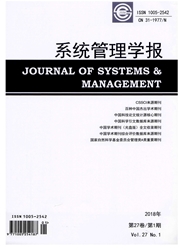
欢迎您!东篱公司
退出

 中文摘要:
中文摘要:
以上证综指和代表性波动周期为例,采用样本外的滚动时间窗预测法,计算了不同收益分布假设下的波动率模型对指数波动率的预测值,并进一步运用基于自举法的SPA检验,评估了各种分布假设对上证综指波动的预测精度。实证结果显示:就中国股市而言,有偏分布能够提供最优的波动率预测精度;在某些损失函数标准下,广义误差分布也具有较好的预测表现。
 英文摘要:
英文摘要:
Take the most important stock index in Chinese stock market as sample,volatility predicting results are computed based on different return distribution hypothesis and out-of-sample rolling time windows method.Using bootstrapping SPA test,we compare the predicting performance of different distributions.The empirical results show that,for Chinese stock market,skew-t distribution is the best one for volatility forecasts.Under some kinds of loss function,GED distribution else performance quite well.
 同期刊论文项目
同期刊论文项目
 同项目期刊论文
同项目期刊论文
 期刊信息
期刊信息
